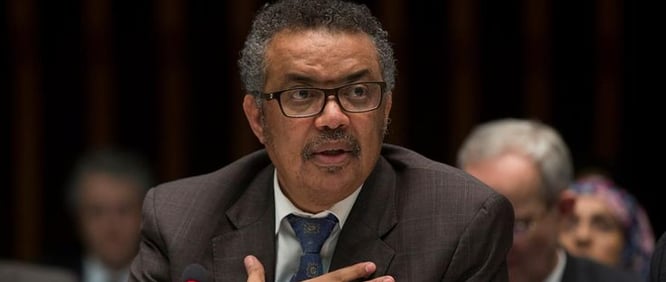WHO initiates expense reductions following US decision to exit by January 2026 | Tracer Tecz
Through its substantial budget contribution of 18%, the US is the WHO's largest financial supporter.
1/25/20252 min read


WHO has initiated cost savings as part of its plans for the eventual US withdrawal in 2021 according to Reuters. Presidential decision took effect the moment President Trump took office through his exec order deeming US exit from the United Nations' health agency. As one of the original members at its founding in 1948 the country continues as a vital participant in the 193-state WHO organization.
The executive order referenced Trump's recurring complaints against WHO's pandemic response and delayed payments and what he saw as Chinese protection to justify the pulled U.S. membership. The World Health Organization issued a statement Tuesday to express its "regret" while maintaining hope that the United States will alter its decision. The WHO delivers protection for worldwide civilian health and safety through activities that pinpoint disease origins alongside strengthening medical systems and reacting to public health disasters in risky areas no one else can reach, according to the statement.
During seven decades of collaboration WHO and the USA have delivered endless life-saving benefits to Americans and global human populations alongside disease prevention services. Through united collaboration we triumphed over smallpox and we are now on the verge of polio's total elimination. American institutions gain benefits as members of WHO for which they make direct contributions.
A US withdrawal from the WHO needs a one-year notice period according to a 1948 Joint Resolution of Congress. United Nations sources reported through Reuters on Thursday they received official communication from the US about its withdrawal from the WHO whose execution will occur starting January 22, 2026.
WHO Director-General Tedros Adhanom Ghebreyesus delivered a missive to his staff regarding budget reductions on January 23. A copy of the communiqué was accessed by Reuters news. "The announcement created an urgent need for financial assistance" according to the letter that Tedros released. WHO depends primarily on payments from membership dues combined with voluntary funds member states contribute.
The United Nations General Assembly defines the payment parameters through which member states calculate dues based on their gross domestic product amounts. WHO receives 18 percent of its total funding from the US while its two-year 2024-2025 budget stands at $6.8 billion according to Reuters. The budget cut preparations at WHO include stopping all hiring processes while cutting travel costs drastically and replacing all physical meetings with virtual ones and putting IT equipment updates and office renovations on hold.
Based on their ongoing discussions the agency plans to reveal other measures before the end of this period according to Tedros. Medical experts alongside global health leaders attribute the United States decision to leave WHO to diminished world security alongside American national weakness. In a CBS/KFF Health News report examining the global health implications of the US withdrawal, Kenneth Bernard, a visiting fellow at the Hoover Institution at Stanford University who served as a top biodefense official during the George W. Bush administration, did not mince words: "It's just stupid," Bernard said. The United States' exit from WHO's leadership creates a vacuum that China will probably dominate thereby interfering with American policy goals, according to Bernard.
Insights
Stay updated on technology and AI advancements.
info@tracertacz.com
© 2024. All rights reserved.
